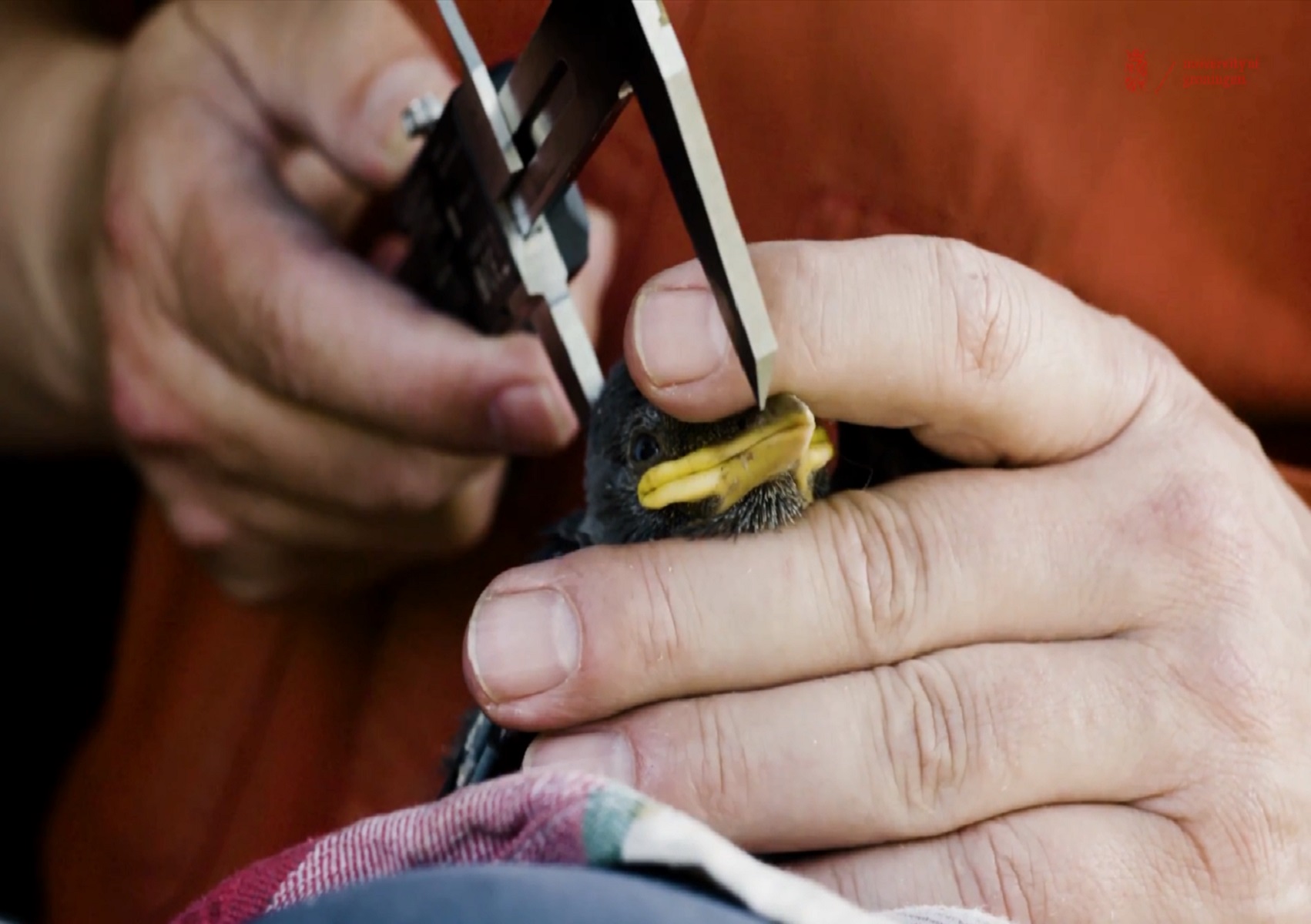The unusual heredity of telomere length
Epigenetic effects play an important role in the inheritance of telomere length. At least a third of the inheritance has an epigenetic nature. These are the conclusions of UG researchers who outlined this phenomenon for the very first time by observing jackdaws in the wild.
Telomeres are DNA structures that protect the ends of chromosomes. Animals and humans with long telomeres are healthier and have a longer life expectancy. This means that it is important to know what causes telomere length variation. The research results will be published in the PLOS Genetics on 14 February 2019.
Unusual heredity
Generally speaking, parents with long telomeres have children with long telomeres, as telomere length variation is mainly genetically determined. However, the way telomere length is inherited is unusual, because a fertilized ova already has a certain telomere length: namely that of the ova and the sperm cell. Therefore, it is possible that telomere length is not only determined by genetic variation, but also directly by the telomere lengths of the ova and sperm cell. This is an unusual form of heredity, named epigenetics, as the inheritance takes place through DNA without genetic code playing a role. It is not yet known how important this aspect of the heredity of characteristics is.
Evolution
The research project, led by Professor of Evolutionary Biology Simon Verhulst, shows that at least a third of telomere length inheritance can be attributed to an epigenetic effect. The results therefore show that epigenetic inheritance can be important. A consequence of epigenetic inheritance is that telomere length can develop much faster in comparison with characteristics that develop solely from genetic code.
The research into telomere length heredity in jackdaws (a small, crow-like bird) is part of a wider UG research project into the causes and effects of telomere length variation. The project is described in this video:

More information
- UG spokesperson Jorien Bakker, tel. 06-11800452
- Prof. Simon Verhulst, tel. 06-25182955, s.verhulst@rug.nl
More news
-
29 January 2026
Microplastic research - media hype or real danger?
-
27 January 2026
ERC Proof of Concept grant for Maria Loi
